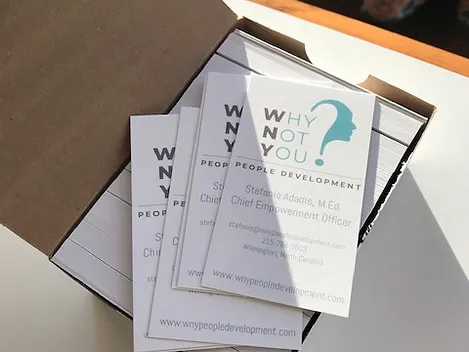Leadership has its benefits; depending on the circumstance, it can come with a higher salary, power, perks, and most importantly, it’s an opportunity to impact the lives of employees (positively OR negatively, depending on the type of leader you are).

Over the course of my career in leadership, I have had to make tons of tough decisions; termination, budget cuts, ethical issues that needed to be confronted, cessation of a project that someone poured blood, sweat, and tears into…none of them easy. Why? Because humans are involved, and humans come with emotions and a story.
We all are capable of some degree of empathy, and mine is high…like “I cry at the Folgers coffee commercial because I feel for the parents whose son made it home from the military in time for Christmas” kind of high. What I call empathy, my husband calls “emoting”, and loves to make fun of me for it. But the reality is, because I recognize and feel what others are going through so strongly, it makes me a better leader…but I had to learn to balance it first, and I’ll give you an example.
As a 22 year old student teacher, I was horrible at classroom management. Most of the students I taught came from extreme poverty, and had encountered adverse childhood experiences at a very young age; when my kids got off task or misbehaved, I tended to go easy on them because my heart didn’t want to add more to their already challenged lives. The outcome?
Classroom chaos.
After observing the madness one day, my advisor pulled me aside and said, “Stefanie, no one is going to give these kids a break in the real world; why are you giving them a break in the classroom? You’re not doing them any favors.” At the time, I was shocked and appalled that this callous individual, who obviously had no empathy, was willing to ignore the difficulties these kids faced to make way for better instruction, but with experience and maturity, I began to understand; I had to learn to balance empathy with data to achieve results.
With reflection, research, and strong mentors to model and provide feedback, I’ve edited and refined a balanced leadership approach over the years. My students and work teams learned I would always be available to listen, flex with their needs, empower them to experiment and grow, and I would go to bat for them; however, they also understood I would provide honest feedback, reroute if they were headed down a bad path, and sometimes have to make decisions that weren’t popular. Those I’ve led, understood I always had their back, and decisions made had their best interest at heart, even if it didn’t feel that way in the moment.
That brings me to an experience I had during the dark days of 2020. At that time, I was Chief Empowerment Officer of WNY People Development, but I was also an elected official, serving in the second of a four year term as a member of my local School Board. A global pandemic definitely took my political career down a very unexpected pathway. Every vote I cast impacted thousands of students and their families; there was never a “right” answer in this unprecedented situation our world faced, and I struggled. My empathy often wanted to give in, and it would have been well received by some if I had let that dominate; however, I had to call on data to provide the balance. My choices were viewed unfavorable by many, and there was often an outcry of anger and outrage, but that’s the downside to leadership…sometimes you have to make the tough calls. Utilizing mind AND heart, leaders must feel comfortable in the decisions they make, and own it.
Being a leader is so much more than hiring, firing, and budgets. For every decision, there is a face, a family, and a story tied to the outcome. Especially now, empathy is an important and necessary trait that leaders must possess. That being said, not all decisions can be made because it “feels good”; we must be brave, informed, and always do what’s in the best interest for the individual, team, and organization.
#whynotyou #peopledevelopmentwithpurpose #leadership #empathy #data #balance #makethetoughcall #bebrave


